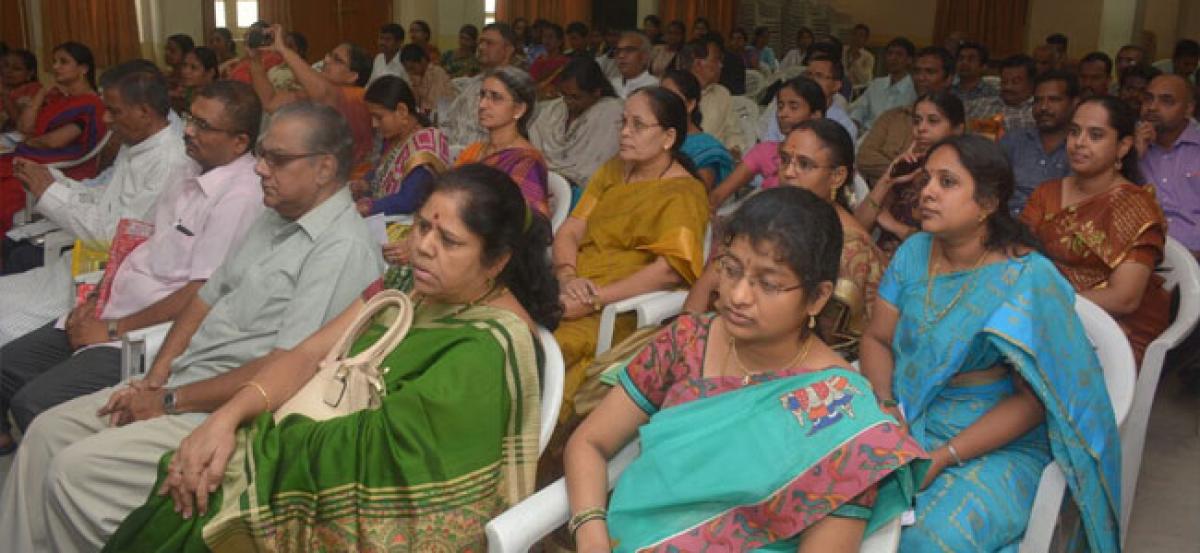Live
- Spewing poison over AMRUT stirs up political storm
- Congress has double PhD in stalling projects: Modi
- No oral mentioning of urgent cases: SC
- Russia plans to boost birthrate with 'Ministry of Sex'
- Govt glare on fund misuse by digital media wing of IT
- Ongole Police to serve notices to director Ram Gopal Varma Over social media posts
- Attackers will not be spared, says minister
- Needle of Vikarabad violence on BRS netas
- BJP condemns police arrests in Kodangal
- Japan’s Toyama Prefecture forges edu links with AP
Just In
National seminar on Telugu language teaching in Telangana


Teachers and writers for educational textbooks should focus more on local dialects so that learners could grasp the language skills, opined the speakers at the one-day seminar, held here at Indian Institute of Management and Commerce (IIMC) on Wednesday
Hyderabad: Teachers and writers for educational textbooks should focus more on local dialects so that learners could grasp the language skills, opined the speakers at the one-day seminar, held here at Indian Institute of Management and Commerce (IIMC) on Wednesday.
The IIMC organized the ‘First Telugu National Conference on Telugu as medium of Instruction in Telangana State-Problems and Solutions, where almost 35 research scholars and teachers presented their papers.
Chairman of the institution Prof Vangapalli Viswanatham along with his counterpart of Telangana Saraswatha Praishad graced the inaugural session. Speaking on the occasion, Prof Viswanatham urged the researchers to go an extra mile in research to find the solutions to rejuvenate the lost glory of Telugu.
Prof Shivareddy explained the hurdle in the way of forming a standard language for a Stage of 31 district. He stressed the need of finding a common language amid different dialects. While elaborating the objectives of the seminar, Dr Kondaveeti Nagavani, the convener of the seminar said that the present seminar was aimed to find out how far the present syllabus enable students to learn their native language.
Telangana Official Language Commission Chairman Devulapalli Prabhakar Rao, who was the chief guest for the valedictory function at the evening recollected how they fought relentlessly to make Telugu as medium of instruction post-Nizam rule. Prof Kasireddy Venkatareddy explained the grandeur of Telugu language and the ways to protect its richness. K Raghuveer, principal of IIMC presented report on the seminar.
Dr Pagadala Chandrasekhar, co-convener proposed vote of thanks in both sessions. Three papers were selected out of the thirty-five and the authors were awarded with Rs 2000 each. “Some of the good papers would get place in a book, which we are binging out soon,” said Nagavani.

© 2024 Hyderabad Media House Limited/The Hans India. All rights reserved. Powered by hocalwire.com






